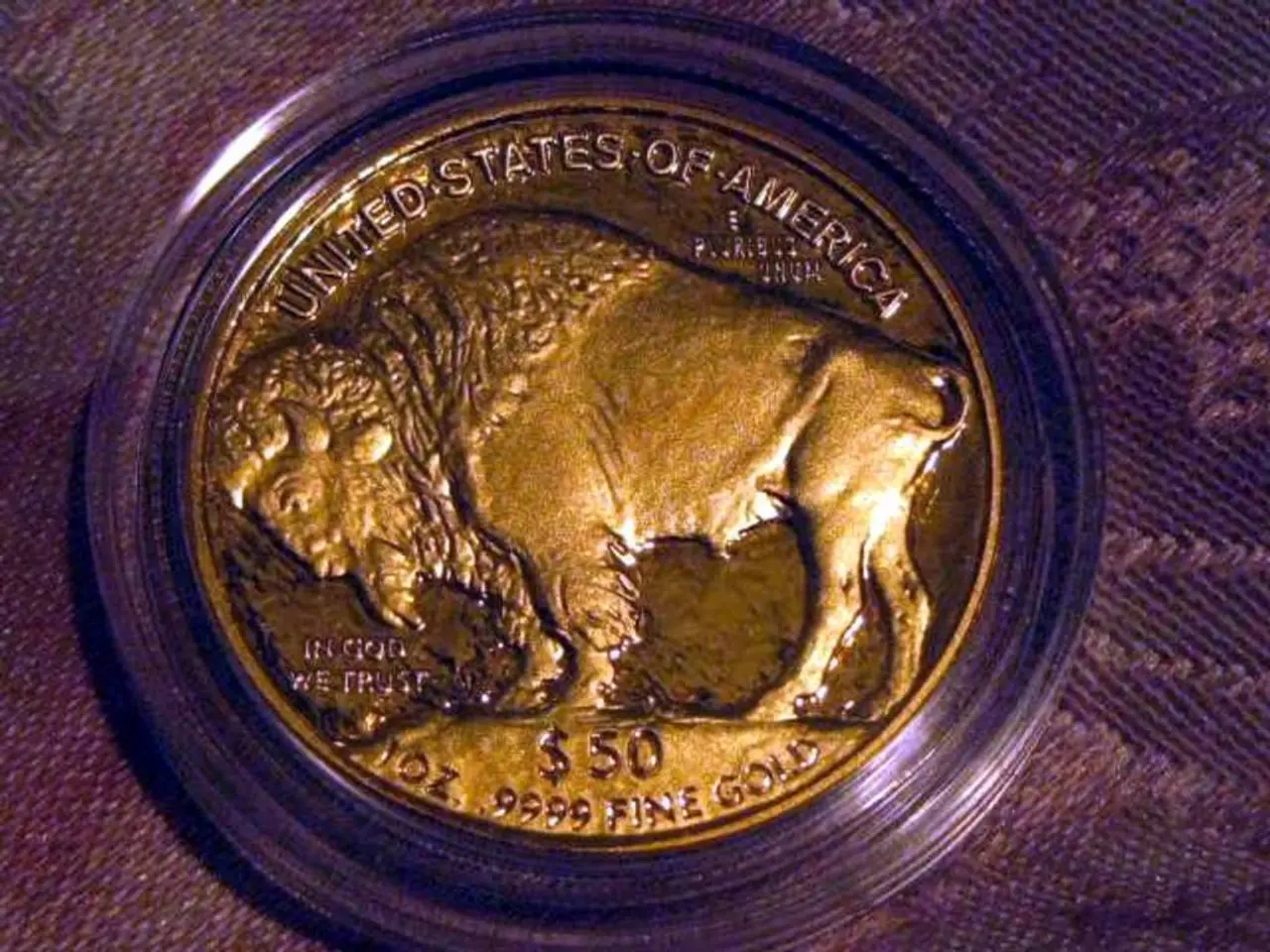Senate faces setback on proposed bill for stablecoin regulation
In a closely watched vote, the Guiding and Establishing National Innovation for U.S. Stablecoins Act failed to receive the necessary Senate votes to advance. The bill, introduced as a bipartisan effort, aimed to regulate stablecoins and foster innovation in the U.S. digital asset sector.
The development is a win for Sen. Elizabeth Warren, who has been vocal about potential conflicts of interest and financial benefits that the Trump family could gain from evolving crypto legislation. Warren has raised concerns about Trump's crypto ties in relation to the GENIUS Act and the Strategic Bitcoin Reserve, a national crypto reserve proposed by President Trump.
Key concerns center around the financial gain linked to official influence, potential conflicts of interest with government crypto policies, lack of legislative restrictions for the President, and the broad impact on U.S. stablecoin innovation.
The Trump family has significant investments in crypto ventures, including American Bitcoin and World Liberty Financial (WLFI), raising questions about whether government policy could legitimize and inflate the value of these holdings, creating conflicts of interest. The recent investor vote to allow trading of $WLFI tokens on public exchanges could substantially increase the family’s wealth.
President Trump's executive order establishing the Strategic Bitcoin Reserve and the United States Digital Asset Stockpile, which includes Bitcoin, Ethereum, Solana, XRP, and Cardano, overlaps with crypto assets held by White House officials and the Trump family's crypto businesses. This raises concerns about whether government policy could legitimize and inflate the value of these holdings, creating conflicts of interest.
While new crypto legislation signed by President Trump bans members of Congress from issuing their own branded cryptocurrencies, this prohibition notably excludes the President. This exemption has sparked criticism given Trump's personal and familial stakes in crypto projects, which may benefit from the regulatory environment that the administration influences.
Sen. Ruben Gallego, D-AZ, and other crypto-friendly Democrats expressed reservations about the Trump family's planned stablecoin initiatives and the rush to review the final bill text. They fear that the involvement of Trump and his family in high-profile crypto projects and their financial interests could affect the integrity of initiatives like the Guiding and Establishing National Innovation for U.S. Stablecoins Act, potentially undermining public trust or swaying regulatory priorities.
Sen. Mark Warner, D-VA, voted against the legislation, stating that the U.S. needs to set a standard for responsible innovation in the digital financial space. Treasury Secretary Scott Bessent called the bill a "once-in-a-generation opportunity" to expand dollar dominance and U.S. influence in financial innovation.
Warren called for rules to prevent government officials from profiting from stablecoin ventures and emphasized the need for consumer protections and safeguards to prevent a stablecoin meltdown from triggering an economic crisis. Warren outlined specific fixes demanded by Democrats to support the GENIUS Act, including stricter regulations on stablecoin issuance, transparency requirements, and consumer protection measures.
Senate Banking Committee Chairman Tim Scott, R-SC, stated he is not finished fighting for the digital asset revolution. Despite the setback, the debate over crypto regulation and the role of government officials in the digital asset space is far from over.
[1] Bloomberg, Wednesday, 12th January, 2023 [2] CoinDesk, Monday, 10th January, 2023 [3] Forbes, Tuesday, 11th January, 2023 [4] The Verge, Thursday, 14th December, 2022
- The failure of the Guiding and Establishing National Innovation for U.S. Stablecoins Act has given Sen. Elizabeth Warren a victory, as she has been critical about potential conflicts of interest and financial benefits that the Trump family could gain from cryptocurrency legislation.
- The Trumps have substantial investments in crypto ventures, such as American Bitcoin and World Liberty Financial (WLFI), leading people to question if government policy could legitimize and inflate the value of these investments, creating conflicts of interest.
- President Trump's executive order for the Strategic Bitcoin Reserve and the United States Digital Asset Stockpile, which includes various cryptocurrencies, overlaps with crypto assets held by White House officials and the Trump family's crypto businesses, raising concerns about whether such policy could create conflicts of interest.
- While the Trump administration banned members of Congress from issuing their own branded cryptocurrencies, this prohibition did not apply to the President, which has provoked criticism due to his personal and familial stakes in crypto projects that may benefit from favorable regulatory environments.




